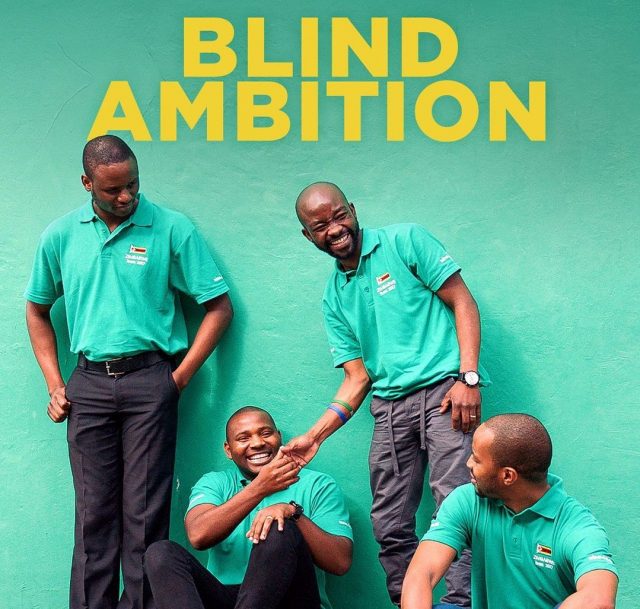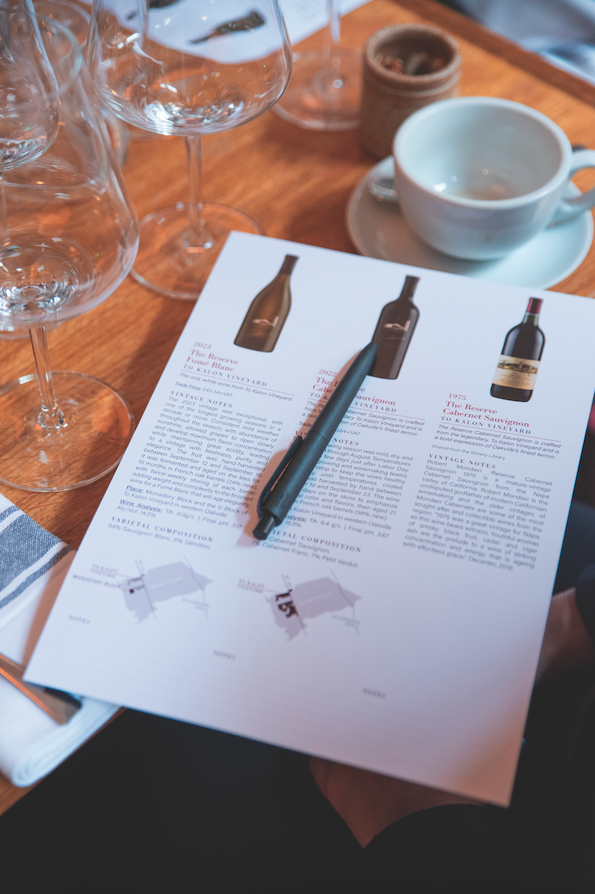db reviews: Blind Ambition
Louis Thomas reviews Blind Ambition, the newly-released documentary that tells the story of Joseph Dhafana, Tinashe Nyamudoka, Marlvin Gwese and Pardon Taguzu – four Zimbabwean refugees who made history by entering the 2017 World Blind Tasting Championships in Burgundy.

The following review contains spoilers. For a spoiler-free overview of the film, click here.
In one of the opening scenes, the four men correctly identify a 2007 Gruner Veltliner during a practice blind tasting. Though it’s just training, their euphoria is contagious and we cannot help but want to be part of their joy. Robert Coe and Warwick Ross’ film carefully treads the tightrope between tragedy, comedy and celebration – not an easy balance to achieve, particularly given how the film contrasts the refinement and privilege of the wine world with the brutality and poverty that these men faced as refugees.
Some have suggested that the film is akin to Cool Runnings (1993), the comedy that tells a fictionalised version of the true story of the Jamaican bobsleigh team in the 1988 Winter Olympics. Indeed, speaking in Blind Ambition, wine writer Tamlyn Currin compares the four men entering the World Blind Tasting Championships as Team Zimbabwe to “Egypt putting together a skiing team”.
Certainly, their introduction to wine was not auspicious. Gwese’s religious beliefs initially prevent him from drinking alcohol, before he decides that as wine is associated with Jesus, it is acceptable. For Dhafana, it was simply a case that he “didn’t like” his first taste. Eventually though, the “wine bug” bites each of the four separately, and eventually their obsession brings them together.
However, though there are elements of the film, particularly after the midpoint, which play on the fish out of water elements that we might expect from such a premise, the documentary never fully descends into cliché, and we never lose sight of the fact that by the time we meet them, just weeks before the competition, they are at the top of their game.
Communicating the sheer sensory difficulty of blind tasting through a visual and auditory medium is certainly a challenge, but talking heads, such as Jancis Robinson MW, go some way to explaining just how skilful blind tasters have to be to succeed.
The contrast of the sequences in Burgundy, with its tranquil vineyards and pristine châteaux, with the archive footage of chaos and extreme hardship in Zimbabwe, and accounts of violence refugees arriving in South Africa faced, serves as stark reminder of the entrenched privilege of the wine world.
It also goes some way to exposing the lack of diversity in that world. Aside from the men and their families, all of the talking heads from the industry interviewed for the film are white. Some might argue that this is a weakness on the part of a film so focused on representation, but I felt that it was a good (though possibly inadvertent) demonstration of the homogeneity of the industry.
Partner Content
Another issue it touches on is the Eurocentric approach to tasting notes: it is pointed out that many of the fruits that have become part of the aroma jargon of wine tasting are less familiar to those outside of Europe. Their route into analysing wine comes when they realise that they can pinpoint flavours they grew up with in Zimbabwe – a testament to how pushing through barriers to embrace different outlooks can make wine a truly universal experience.
It is hinted at that this ‘unconventional’ approach is actually their greatest asset. This is further demonstrated with the questions the film raises towards the end as to whether their coach, eccentric (and increasingly argumentative) Frenchman Denis Garret, is a help or a hindrance. Garret’s arrival in the film marks an unexpected comedic interlude, adding levity to the narrative without detracting from the emotional weight of what has come before.
But in truth, though Blind Ambition raises some very pertinent issues about how we perceive wine, the deeper theme is that of ‘home’. While their relationship with their country of birth is difficult, they still fly the flag of Zimbabwe and speak warmly of their attachment to ‘Zim’, and the family members who are still there. It isn’t so much patriotism as pride in their roots.
The contrast between harrowing stories of their journeys to where they are and the evident pleasure they find in their craft brings former AC Milan manager Arrigo Sacchi’s line about football to mind: “[It] is the most important of the least important things in life.” Perhaps the same can be said for wine. There are bigger issues at stake, but wine gave them careers, a renewed sense of purpose, and ultimately brought them together.
The somewhat melancholic conclusion might seem at odds with it being an ‘inspirational’ story, but it captures feelings of disappointment that will doubtless be relatable to many, even those who have never taken part in a blind tasting competition.
Arguably, the final scene, which reveals on title cards what each of them did next, is the weakest point in the entire documentary. Their participation in the competition is portrayed as a milestone for diversity in the wine industry, but the wider ramifications, beyond their individual lives, seem to be largely ignored. But big things have small beginnings, as the end card sharing Team Zimbabwe’s significant progress the following year reveals.
Overall, it is a well-crafted work that gets to the essence of its subjects, providing moments of poignancy and humour, even if some areas feel underdeveloped or unexplored. Though it’s a story ripe for a Hollywood remake with an all-star cast, Blind Ambition ultimately does Team Zimbabwe’s achievement justice by allowing its pioneering tasters to tell their story themselves.
Related news




